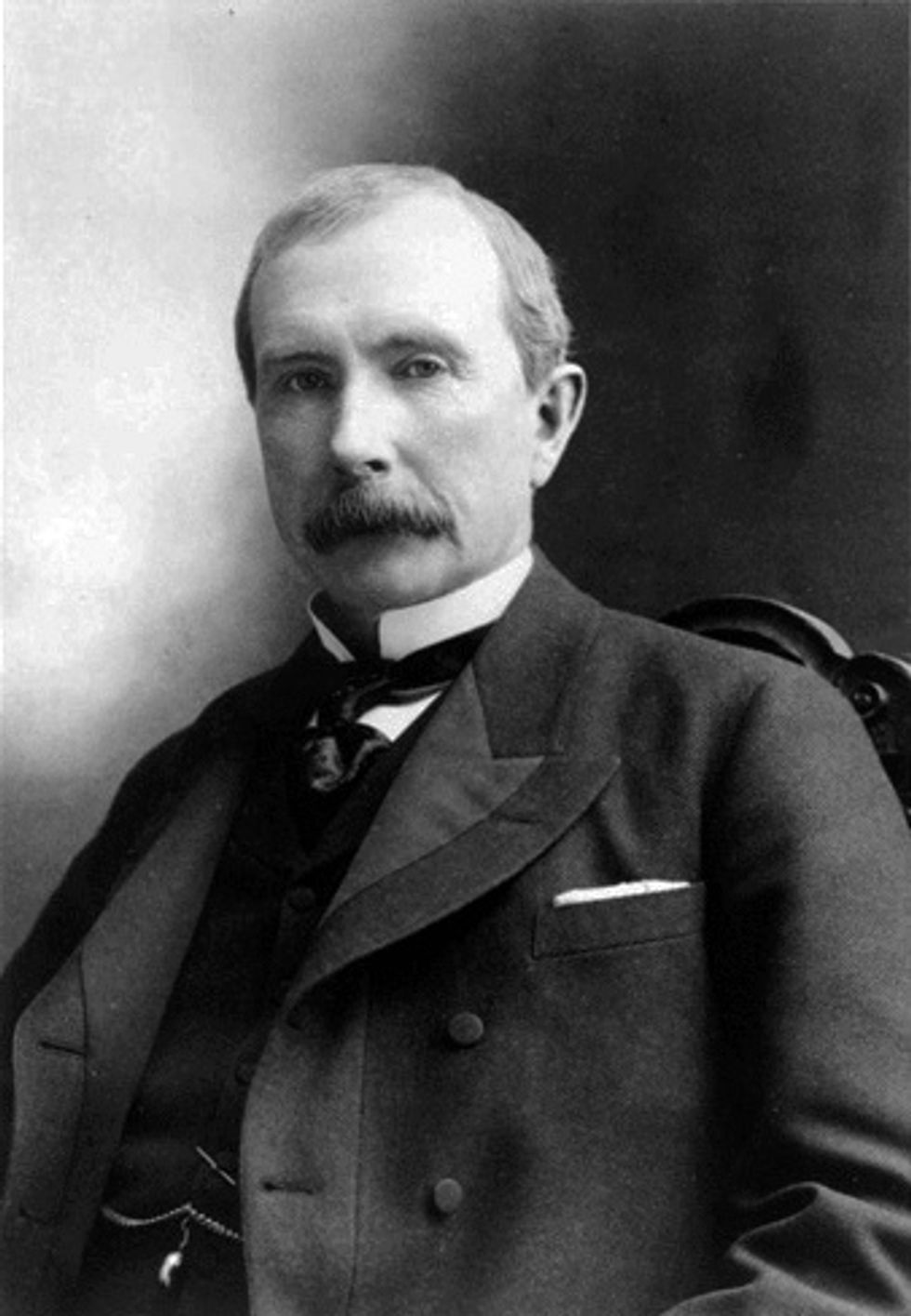John D. Rockefeller was born on July 8, 1839, in Richmond, New York. Throughout his childhood, he did little jobs like selling candy, raising turkeys and doing other jobs for his neighbors. At the age of sixteen Rockefeller was working with a clerk that worked with coal, grain, and other supplies. The clerk sold and shipped these supplies. This was in 1855 and by 1859 he and a partner had established a commissions firm of their own. That was when the first oil was drilled in America in Pennsylvania. It was in 1863 when Rockefeller actually entered the oil industry along with many partners; this was done by investing in the Cleveland refinery.
Rockefeller then married Laura Celestia "Cettie" Spelman in 1864, and with her, he had one son and four daughters. Spelman was from Ohio, and her father was a politician, a merchant and an active abolitionist in the underground railroad. The black women's college in Georgia was named Spelman college after Laura Rockefeller and her husband helped with the finances for this college.
In 1865, Rockefeller decided that he wanted to take control of the refinery, so he borrowed money from his partners in order to do so. Over the years, Rockefeller continued to grow his company and by 1870 he had successfully made the name Standard Oil Company of Ohio. This company had been known as a monopoly in the oil industry because it took over its rivals so that it could distribute its oil everywhere. By 1882, there were a plethora of different companies that came together in order to create the Standard Oil Trust. This ended up having at least ninety percent of the country's oil supply. Not only did Standard Oil own the majority of the oil supply, but it also helped use the funds to make jobs, like scientists to make new uses for this oil, and having more people place the pipelines into the earth, so he did not have to use his competitors.
However, there was a downside to all of Rockefeller's success was that he was subject to many bad views in society. There were people who saw him as greedy and corrupted. As The New York Times reported in 1937: "He was accused of crushing out competition, getting rich on rebates from railroads, bribing men to spy on competing companies, of making secret agreements, of coercing rivals to join the Standard Oil Company under threat of being forced out of business, building up enormous fortunes on the ruins of other men, and so on".
Then in 1890, The Sherman Antitrust Act was passed by congress. This stopped the combining of trusts in trade. After two years the Standard Oil Company was dissolved because of the Ohio Supreme Court. However, in a way, the legacy of Rockefeller was continued because this company was a part of the Standard Oil of New Jersey, but by 1911, the Supreme Court once again broke this up into many smaller companies. It was broken up because it was said to be illegal because this company was booming just like the other company.
Throughout history, Rockefeller was an entrepreneur who had his good and bad times, as anyone would have. Though his once success story known to us is about the Standard Oil Company, which was broken after years of success, he is still believed to be the one who started the oil competition. He gave away much of his money to various charities and various universities, like the black woman's college mentioned above. He was one of the richest men in the world and instead of using it for himself. He decided to use it for the reasons above.

















